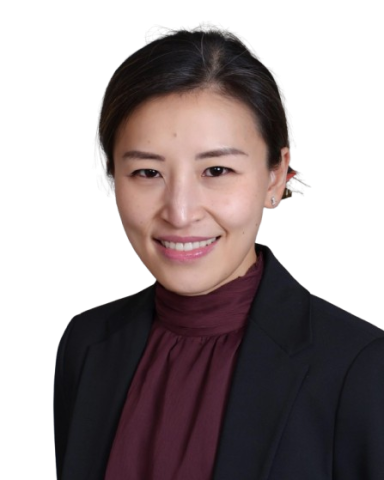What is considered as a cliché to some was a moment of revelation for Dr. Qingwen Kawaji, where all the puzzle pieces came together to lead her down the vascular surgery path.

Now a fellow at John Hopkins Medicine, Dr. Kawaji has had time to reflect on the soul-searching she did in medical school for what her next steps would be. General surgery was her initial route, but in her fourth year of medical school, she had one last elective to complete, which was vascular surgery.
“It was truly an eye-opening experience for me, I didn't know anything about endovascular before or what stents were,” said Dr. Kawaji. “As a medical student, it was one of my best rotations, with the people, the attendings and the residents. Everybody got me, the medical student, involved and I felt as part of the team.”
After completing her rotations, she moved on to her residency program at MedStar Health. The connections she built during this time with the older patient population reminded her of the times she would spend with her grandparents and their friends. Dr. Kawaji was born in China and spent her childhood and adolescent years between China and the United States, spending most of that time with her grandparents. Vascular surgery became a specialty she felt right at home.
“A big reason that drew me to vascular surgery was that as vascular surgeons, we take care of our patients for life, from head to toe. That bond is very special and what makes this specialty extremely rewarding,” said Dr. Kawaji.
This connection is an intimate and special relationship for her that requires vulnerability and trust from both parties. When Dr. Kawaji thinks of diversity, she thinks of different experiences that people have and how that helps her to communicate with her patients in making decisions and in having difficult conversations. From her own experience, she sees patients gravitating towards people who they can relate to and to those who understand them.
Dr. Kawaji’s advice for her fellow trainees, and even to herself at times, is to have patience when dealing with uncertainty: nobody starts off as a master surgeon.
“There is a reason why we need training, and this is the reason why it’s called a practice, because you are never done,” said Dr. Kawaji. She looks forward to what the future of the practice will hold as it continues to change. From her former engineering background, she sees how the surgeon will continue to change as technology and medicine advances for the next generation of vascular surgeons.
Dr. Kawaji encourages the SVS membership to engage with the SVS Foundation and donate to the initiatives available that assist other medical students who are working through their own career paths. As her parents instilled in her, if you love something, put money into it.
“Every dollar counts, and if everybody in the SVS donates $1, every little donation could change the matter of a student’s trajectory in life and it can have a more profound influence than we may know,” said Dr. Kawaji.
When you donate to the SVS Foundation, you support Voices of Vascular's important work in promoting diversity, equity, and inclusion. Learn more and make your gift today.
